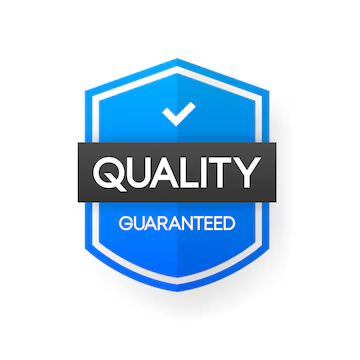Personal Development Portfolio Summary Essay Question
The challenges of contemporary management of both organisations and individuals have been brought into clear focus in 2020. Based on your learning and reflections from at least two topics from weeks 7-11 of the module, and informed by relevant theory and research: Critically evaluate your strengths and weaknesses as a potential manager, and discuss how you intend to develop these skills in the future.
Suggested Structure
Introduction (approx. 10- 15%)
Clearly explain the scope and focus of your evaluation, identifying at least two of the topic areas covered in the module. Tell the reader what you are including and clearly set the scene for what will follow.
Main Body (approx. 65-70%)
Divide this into appropriate sections in relation to your chosen topic areas. For example, your first topic might discuss your skills in relation to your ability to problem solve.
Whilst you might need to describe your experience in relation to this skill, it is best to keep this brief and ensure that you are using the literature to evaluate your strengths or weaknesses. You should draw on a real life example to support your evaluation. For example, your evaluation could discuss a time when you had to problem solve, or talk about the learning you have taken from knowing more about your personality.
You do not have to discuss strengths and weaknesses for each topic. Problem solving might be a strength, and you can explain why this is the case. Goal-setting might then be a weakness, and once again, explain, with a mixture of description from your experience, and using the literature why this is the case. For each topic, clarity is important in how you reflected, what examples you have, why you perceive this to be a skill/area of development, and how you intend to use this new knowledge in your future practice.
To support your evaluation, evidence of a particular model of reflection being applied would be preferred. It is important for you to explain not just what you consider your strengths/weaknesses to be, but why that is the case, and how you intend to develop weaker areas.
You might use a SWOT analysis to evaluate your skills and a personal development plan as a means of evidencing your intentions to develop these. If you use either of these approaches, it is important that you provide a detailed commentary, using appropriate literature. The SWOT/PDP should be viewed as tools to support your reflection, not replace your reflection.
Discussion and Conclusion (20-25%)
A consideration of the key learning points you have taken from engaging in reflective practice. Do not just summaries what you have said in the main body, but highlight insights that have been particularly valuable. What do the results of your reflection mean to you? How do you intend to apply what you have learned from the module in future? How has engaging in reflective practice benefitted you?
Reference List
Only include sources that youve referenced within your assignment.
This assessment assesses the following modular learning outcomes:
Contextualise the purpose and process of Management in contemporary contexts
Develop an awareness of what it means to be a management professional and start to build their professional identity through the use of reflection and planning
Click here for full Learning Outcomes and Module Specification
Formative Feedback and Support
Formative feedback provides opportunities to reflect on your ongoing work and preparation for your assignment. This is given within your TUTORIALS (two-hour workshops) which run every week; all students are timetabled to be able to attend one of these. Every tutorial will include some work on the assignment, this will include: how to answer the question, what is expected of you, assistance with writing, and constructing/planning your answers, so please
DO attend all tutorials
DO think about your piece and ask the questions you need to ask within your tutorials
You can also arrange to discuss your assignment with your seminar tutor however we do not read drafts
Further information about this assessment is available on the Blackboard site for this module and includes:
FAQs and other guidance documents, reading list sections and other useful references.
Format
All work should be word processed in 12 point font Calibri, Times New Roman or Arial and double spaced.
Please use the following file format(s): .doc / .docx (please note that files submitted in formats associated with Apple Mac computers are not able to be opened, and thus, not able to be marked. It is your responsibility to ensure that you submit your coursework in the appropriate format. We cannot ensure that other formats are compatible with markers software.
Please ensure that you provide the following details on the first page of your coursework:
Your student Number
The module Name and Number
Your word Count
Word Limit
The work should be 1600 words long.
This word count includes everything in the main body of the text (including headings, tables, citations, quotes, lists, etc.).
The references, bibliography and footnotes (provided footnotes only include references) are NOT included in this word count.
There is no direct penalty for exceeding the word count, but the marker WILL stop reading once the maximum word limit has been reached and nothing further will be taken into account in the allocation of marks.
You can view the UWE word count policy here: http://www1.uwe.ac.uk/aboutus/policies
Referencing
Please ensure you adhere to the principles of good academic practice and ensure you use the UWE Harvard system to reference your work. Failure to properly reference your work to original source material can be grounds for the assessment offence of plagiarism and may result in failure of the assessment or have more serious implications.
For further guidance on correct referencing go to:
http://www1.uwe.ac.uk/students/studysupport/studyskills/referencing.aspx
Details of what constitutes plagiarism and how to avoid it can be found here:
http://www1.uwe.ac.uk/students/studysupport/studyskills/readingandwriting/plagiarism.aspx
For general guidance on how to avoid assessment offences see:
http://www1.uwe.ac.uk/students/academicadvice/assessments/assessmentoffences.aspx
Instructions for submission
You must submit your assignment before the stated deadline by electronic submission through Blackboard. Notification that the electronic submission portal is open for your assignment is displayed (usually two weeks before the submission date) in the Coursework tab in myUWE, the Assignment Coursework tab in Blackboard and via an announcement in the Blackboard course.
Please allow enough time to upload your assignment, noting that the system becomes busier and slower as the deadline approaches. Only your final upload will be counted. Ensure all your information is submitted at one attempt to avoid overwriting your intended submission. Always check and retain your receipts.
Late submission in the 24 hours following the deadline will be accepted but the assignment mark will be capped at 40%. Submissions after 24 hours will not be accepted. For full guidance on online submission through Blackboard, see:
http://info.uwe.ac.uk/online/Blackboard/students/guides/assignments/default.asp
Submissions of coursework by any other method (including a paper copy, on disk or by email) are NOT permissible for this module unless specifically agreed in advance of the submission date.
Before submitting your work, please ensure that:
You have proof read you work thoroughly to ensure your work is presented appropriately
You have addressed all the required elements of the assessment
You have referenced in accordance with the guidance provided
You have addressed each of the marking criterion
The submission is in the correct format
Safe Assign
Make sure you submit your own work and do not plagiarise from other sources or students. All modules within FBL have the option to use Safe Assign software. Safe Assign will compare you work to those of other students (current and past) as well as other materials available on internet. UWE will act if Safe Assign suggests your work includes material that is copied from other sources.





 February 15th, 2021
February 15th, 2021 

